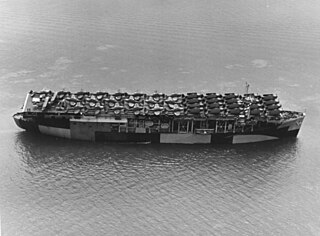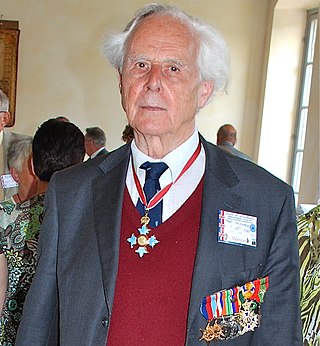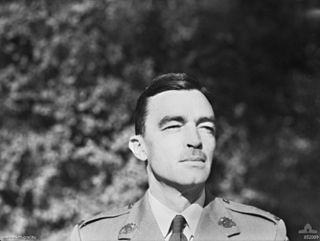Related Research Articles

The Admiralty was a department of the Government of the United Kingdom responsible for the command of the Royal Navy until 1964, historically under its titular head, the Lord High Admiral – one of the Great Officers of State. For much of its history, from the early 18th century until its abolition, the role of the Lord High Admiral was almost invariably put "in commission" and exercised by the Lords Commissioner of the Admiralty, who sat on the governing Board of Admiralty, rather than by a single person. The Admiralty was replaced by the Admiralty Board in 1964, as part of the reforms that created the Ministry of Defence and its Navy Department.
James Findlay Hendry was a Scottish poet known also as an editor and writer. He was born in Glasgow, and read Modern Languages at the University of Glasgow. During World War II he served in the Royal Artillery and the Intelligence Corps. After the war he worked as a translator for international organizations, including the UN and the ILO. He later took a chair at Laurentian University. He died in Toronto.
Donald Gordon Payne was an English author, most famous for his 1959 novel, Walkabout. Payne was made a Fellow of the Royal Geographical Society in 1962.

The Long Island-class escort carrier was a two-ship class, originally listed as "AVG". They were converted from type C3-class merchant ships.

Michael Richard Daniell Foot, was a British political and military historian, and former British Army intelligence officer with the Special Operations Executive during the Second World War.
Richard Alexander Hough was a British author and historian specializing in maritime history.

Australia in the War of 1939–1945 is a 22-volume official history series covering Australian involvement in the Second World War. The series was published by the Australian War Memorial between 1952 and 1977, most of the volumes being edited by Gavin Long, who also wrote three volumes and the summary volume The Six Year War.
Captain Stephen Wentworth Roskill, was a senior career officer of the Royal Navy, serving during the Second World War and, after his enforced medical retirement, served as the official historian of the Royal Navy from 1949 to 1960. He is now chiefly remembered as a prodigious author of books on British maritime history.

Gavin Merrick Long was an Australian journalist and military historian. He was the general editor of the official history series Australia in the War of 1939–1945 and the author of three of its 22 volumes.
Andrew Michael Duncan Lycett FRSL is an English biographer and journalist.

Addison Beecher Colvin ("Cal") Whipple was an American journalist, editor, historian and author. He was born in Glens Falls, New York, on July 15, 1918, and spent most of his childhood in Suffield, Connecticut. He graduated from the Loomis School, from Yale University in 1940 and received an M.A. from Harvard University before being hired by Life Magazine. He had many positions at Time/Life and wrote a number of books about maritime history.
Bernard Ireland was a British naval engineer, editor of Jane's and writer on naval matters.
John Peter Oleson is a Canadian classical archaeologist and historian of ancient technology. His main interests are the Roman Near East, maritime archaeology, and ancient technology, especially hydraulic technology, water-lifting devices, and Roman concrete construction.
Brian Lavery, is a British naval historian, author, and Curator Emeritus at the National Maritime Museum, Greenwich, London, England.

This Bibliography covers sources for Royal Navy history through the 18th and 19th centuries. Some sources may be duplicated in sections when appropriate. Among the contemporary and earlier historical accounts are primary sources, historical accounts, often derived from letters, dispatches, government and military records, captain's logs and diaries, etc., by people involved in or closely associated to the historical episode in question. Primary source material is either written by these people or often collected, compiled, and/or written and published by other editors also, sometimes many years after the historical subject has passed. Primary sources listed in this bibliography are denoted with an uppercase bold ' (P) before the book title. Publications that are in the public domain and available online for viewing in their entirety are denoted with E'Book.

Warfare in early modern Scotland includes all forms of military activity in Scotland or by Scottish forces, between the adoption of new ideas of the Renaissance in the early sixteenth century and the military defeat of the Jacobite movement in the mid-eighteenth century.

HMS Grimsby was a sloop of the British Royal Navy, the lead ship of her class. Grimsby was built in the 1930s, entering service in 1934. Serving most of her pre-war service at Hong Kong, Grimsby was deployed on convoy escort duties along the East coast of the Britain and in the Mediterranean Sea during the Second World War, and was sunk by dive bombers off Tobruk on 25 May 1941.

Ian Callum McGibbon is a New Zealand historian, specialising in military and political history of the 20th century. He has published several books on New Zealand participation in the First and Second World Wars.

A windjammer is a commercial sailing ship with multiple masts that may be square rigged, or fore-and-aft rigged, or a combination of the two. The informal term "windjammer" arose during the transition from the Age of Sail to the Age of Steam during the 19th century. The Oxford English Dictionary records the word "windjamming" from 1886 and "windjammer" with reference to a ship from 1892. The term has evolved to include such a vessel, carrying passengers on overnight cruises in the Caribbean, the U.S. state of Maine and elsewhere.
References
- The Oxford Companion to Ships and the Sea (Author's bio)